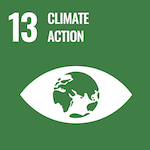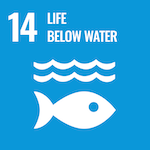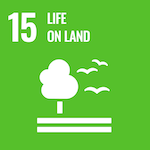BIG GAME, CLEAN GAME
- Yulia Strokova

- Jan 29, 2020
- 3 min read
Updated: Feb 7, 2020
Environmental initiatives across South Florida for Super Bowl LIV
The average Super Bowl produces roughly 60 tons of waste. That’s about the weight of a US army tank.
For decades, the National Football League Green runs environmental initiatives in their respective Super Bowl host city the week before the biggest game of the year.
This year, the organization is taking on several major efforts to achieve a “zero waste” goal in Miami. Ambitious? Yes. Real? Yes.
"The number of people who paid attention to science, news, science discoveries are insignificant compared to the number of people who paid attention to sports," NFL Green program director Jack Groh said. "So, if we can use that sports vehicle for these messages about sustainability and environmental protection … then I think we're reaching a broader audience."

The NFL Host Committee partnered with the Everglades Foundation and Ocean Conservancy, kicking off the Ocean to Everglades Initiative to create a stage for environmental events, education, and sustainability efforts throughout South Florida.
In a series of beach cleanups, they removed and diverted 54 tons of ocean plastic and trash from Florida’s coasts and waterways for Super Bowl LIV.
The final beach cleanup was held at historic Virginia Key Beach Park in Miami as part of the NFL’s Huddle for 100 initiative, which is designed to encourage people to commit 100 minutes of their time to volunteer in their communities. The ultimate goal: log over 100 million minutes of community service in celebration of the league’s 100th season.
“While we still have a long way to go, we’re extremely proud that, through our partnership with the Miami Super Bowl Host Committee, Florida’s beaches and coasts are cleaner than ever,” said Janis Searles Jones, CEO of Ocean Conservancy. “To everyone who joined #TeamOcean this season – including NFL players, fishermen, teachers, and companies – thank you. This is the perfect example of how people from all backgrounds can unite to bring more attention and action to our ocean.”
This partnership comes at a critical time for Miami and Florida. The 8,436 miles of Florida coastline along the Atlantic and Gulf of Mexico, the world-class beaches, unique marine wildlife, and celebrated coastal communities across the state are dealing with increased stress. From harmful algal blooms and plastic pollution to ocean acidification and sea-level rise, the ocean and all who live in it need bold action.
Ocean Conservancy also has an activation within Super Bowl LIVE’s Environmental Village where visitors can walk under the waves and see the ocean in a different light.
No More Plastic
One of the major sources of waste for any large event is food and drink containers. While almost every restaurant and bar in Miami has done away with plastic straws, NFL Green’s going a bit farther.
In partnership with Footprint, an Arizona company founded by former Intel employees, all food and drink containers at Super Bowl events are compostable and marine-degradable.
Footprint provided over 100,000 fiber-based bowls, cups, plates, hot dog boats, straws and other food containers for concerts, parties and shows preceding the big game. Footprint uses recycled fiber like cardboard to create their compostable food ware products.
According to Footprint, the switch from plastic products will save over 4,000 kg of carbon dioxide from entering the atmosphere, which is about the same amount an average car driving 10,350 miles would exhaust.
While tackling the problem of waste from single-use products, Super Bowl LIV vendors will also debut branded, recyclable aluminum cups. Hard Rock Stadium’s official caterer, Centerplate, will serve 50,000 of these cups alongside a menu of Cubano sausage, watermelon salads, paella and more, made with ingredients from local farms. Hard Rock Stadium -- host of the big game -- became the first to use recyclable, aluminum cups at scale during the Miami Dolphins’ final home game of the season.

After the Super Bowl, the cups will continue to be available at Hard Rock Stadium throughout the year for Miami Dolphins games, University of Miami college football games, international soccer matches, concerts, and all other events. As a result, the aluminum cups will help eliminate more than 500,000 plastic cups from Hard Rock Stadium’s supply chain, the companies said.
According to a report from the World Economic Forum, worldwide use of plastic has increased 20-fold in the past 50 years and is expected to double in the next 20 years. The report also predicts that if we continue to produce plastic at these rates while failing to properly dispose of them, plastics in the ocean will outweigh fish by 2050.















Comments